第19章 CHAPTER IX(2)
No one but myself could ever realize what it was like. I had never known that there could be such a feeling of companionship in the world. It would not have been necessary for us to talk at all if we had felt silent. We should have been saying things to each other without words. But we did talk as we walked--in quiet voices which seemed made quieter by the mist, and of quiet things which such voices seemed to belong to.
We crossed the park to a stile in a hedge where a path led at once on to the moor. Part of the park itself had once been moorland, and was dark with slender firs and thick grown with heather and broom. On the moor the mist grew thicker, and if I had not so well known the path we might have lost ourselves in it. Also I knew by heart certain little streams that rushed and made guiding sounds which were sometimes loud whispers and sometimes singing babbles.
The damp, sweet scent of fern and heather was in our nostrils; as we climbed we breathed its freshness.
"There is a sort of unearthly loveliness in it all," Hector MacNairn said to me. His voice was rather like his mother's. It always seemed to say so much more than his words.
"We might be ghosts," I answered. "We might be some of those the mist hides because they like to be hidden."
"You would not be afraid if you met one of them?" he said.
"No. I think I am sure of that. I should feel that it was only like myself, and, if I could hear, might tell me things I want to know."
"What do you want to know?" he asked me, very low. "You!"
"Only what everybody wants to know--that it is really AWAKENING free, ready for wonderful new things, finding oneself in the midst of wonders. I don't mean angels with harps and crowns, but beauty such as we see now; only seeing it without burdens of fears before and behind us. And knowing there is no reason to be afraid. We have all been so afraid. We don't know how afraid we have been--of everything."
I stopped among the heather and threw my arms out wide. I drew in a great, joyous morning breath.
"Free like that! It is the freeness, the light, splendid freeness, I think of most."
"The freeness!" he repeated. "Yes, the freeness!"
"As for beauty," I almost whispered, in a sort of reverence for visions I remembered, "I have stood on this moor a thousand times and seen loveliness which made me tremble. One's soul could want no more in any life. But `Out on the Hillside' I KNEW I was part of it, and it was ecstasy. That was the freeness."
"Yes--it was the freeness," he answered.
We brushed through the heather and the bracken, and flower-bells shook showers of radiant drops upon us. The mist wavered and sometimes lifted before us, and opened up mystic vistas to veil them again a few minutes later. The sun tried to break through, and sometimes we walked in a golden haze.
We fell into silence. Now and then I glanced sidewise at my companion as we made our soundless way over the thick moss. He looked so strong and beautiful. His tall body was so fine, his shoulders so broad and splendid! How could it be! How could it be! As he tramped beside me he was thinking deeply, and he knew he need not talk to me. That made me glad--that he should know me so well and feel me so near. That was what he felt when he was with his mother, that she understood and that at times neither of them needed words.
Until we had reached the patch of gorse where we intended to end our walk we did not speak at all. He was thinking of things which led him far. I knew that, though I did not know what they were. When we reached the golden blaze we had seen the evening before it was a flame of gold again, because--it was only for a few moments--the mist had blown apart and the sun was shining on it.
As we stood in the midst of it together--Oh! how strange and beautiful it was!--Mr. MacNairn came back. That was what it seemed to me--that he came back. He stood quite still a moment and looked about him, and then he stretched out his arms as I had stretched out mine. But he did it slowly, and a light came into his face.
"If, after it was over, a man awakened as you said and found himself--the self he knew, but light, free, splendid--remembering all the ages of dark, unknowing dread, of horror of some black, aimless plunge, and suddenly seeing all the childish uselessness of it--how he would stand and smile! How he would stand and SMILE!"
Never had I understood anything more clearly than I understood then. Yes, yes!